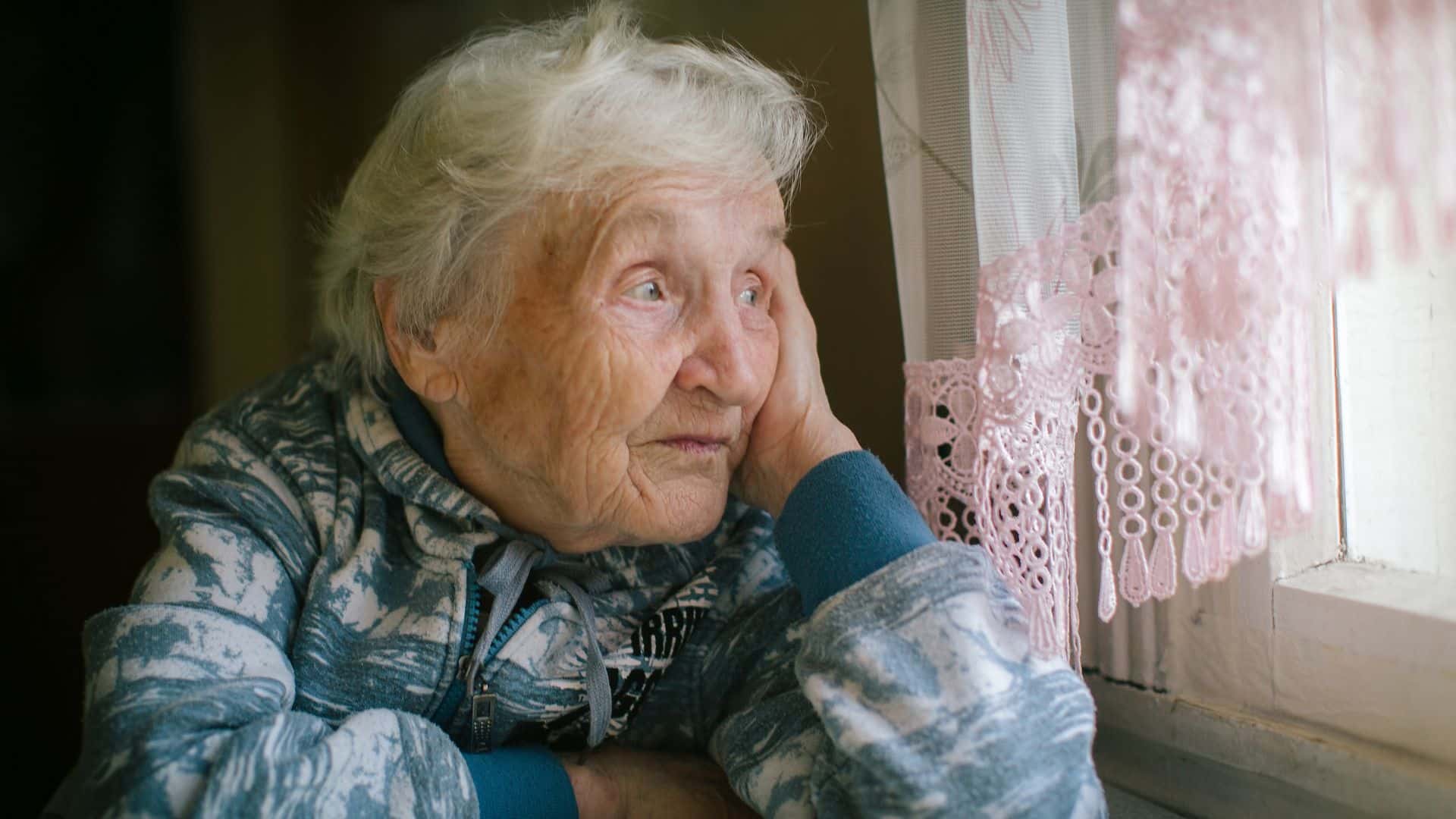Watching older adults suffer the effects of Alzheimer disease can be a burden to relatives. Memory care centers may be able to help. Additionally, the therapy can be used to assist dementia patients to enjoy life more easily and to have an optimal daily routine. What's the importance of Memory Care? Memory care represents the unique group of assisted living and residential care programs available.
Memory Care Services
The services offered by Memory Care are designed specifically for memory impairment. Because Alzheimers is characterized as an illness in many forms, with varying stages, memory care facilities have wide scopes of care that can help people who are battling dementia and who are experiencing dementia. A variety of services can be found in Memory Care settings, including: Memory care communities that are not always providing specialized high-quality care. In contrast, this level of service resembled a senior living home with more measures being implemented to help seniors with cognitive impairment.
What is another name for memory care unit?
A specialized and crucial component of senior care, a memory care unit serves as another name for dementia care, providing a safe and supportive environment for individuals with various forms of cognitive impairment. Within these special care facilities, the focus is on enhancing quality of life for residents while addressing their unique needs stemming from memory loss conditions such as Alzheimer's disease.
Memory care units go beyond traditional assisted living arrangements by tailoring services to promote mental stimulation, maintain functional abilities, encourage social interaction, and minimize the potential risks associated with dementia-related behaviors. With trained staff members who possess expertise in managing challenging symptoms and promoting individualized routines, these units prioritize offering person-centered approaches that empower residents to live fulfilling lives despite their cognitive decline.

Benefits of Memory Care
Memory care facilities, also known as memory care communities, offer a myriad of benefits for individuals experiencing cognitive decline or conditions such as Alzheimer's disease or dementia. These specialized establishments are equipped with state-of-the-art resources and exceptional staff trained to provide compassionate care tailored specifically to the unique needs of each resident.
One noteworthy advantage of memory care facilities is their emphasis on creating safe and secure environments that minimize anxiety and confusion among residents, thereby promoting a better quality of life. From monitored entryways to specially designed layouts that aid navigation, these communities ensure a sense of familiarity and comfort for those struggling with memory loss. Furthermore, professionally administered activities promote mental stimulation by engaging residents in cognitive exercises like puzzles, games, storytelling sessions, art therapy sessions or even reminiscence therapy - helping them maintain existing abilities while slowing down further cognitive decline.
Additionally, memory care professionals undergo extensive training enabling them to facilitate communication techniques that effectively address the challenges associated with memory-related conditions; this promotes understanding between caregivers and residents fostering stronger connections within the community itself. Memory care facilities are designed with purposeful attention to detail from color-coding schemes assisting vision impairments to outdoor spaces where seniors can safely enjoy fresh air while remaining under continuous supervision thus preventing any wandering incidents.
Overall, these specialized communities stand apart in their commitment towards ensuring holistic well-being by placing an emphasis on preserving dignity often providing support services such as medication management and assistance in daily tasks like bathing or dressing when required while additionally recognizing individual preferences for dining choices through personalized nutrition plans curated by professionals.
How to find Memory Care near me
When seeking optimal care for individuals with memory-related conditions, such as dementia or Alzheimer's disease, it is crucial to locate appropriate memory care facilities in proximity. These purpose-built communities prioritize the specific needs of residents by providing specialized services and comprehensive support systems.
To find suitable memory care near you, begin by conducting thorough research online using credible resources. Utilize search engines or dedicated platforms that cater specifically to senior living options, acknowledging the importance of keywords like "memory care" or "assisted living facility." Delve into informative websites that compile detailed information regarding memory care communities in your desired location.
These sites often provide essential data about amenities offered, costs involved, quality ratings from authorities on eldercare, and testimonials from both residents and their families. Additionally, reaching out to local healthcare professionals like doctors specializing in geriatric medicine can prove invaluable; they possess valuable insights into reputable memory care facilities within their network. Simultaneously consult with friends or acquaintances who may have personal experiences relevant to this field; personal recommendations often contribute significantly towards ensuring a tailored match between resident requirements and available services at potential community choices nearby.
Ultimately recognizing that finding an ideal memory care facility demands meticulous research utilizing trustworthy sources while incorporating professional guidance supports a sense of confidence when making such important decisions for our loved ones' safety and well-being
When looking at memory facilities, visit and ask some questions. The goal is to assess the atmosphere and assess cleanness. Also discover whether there are residents in these facilities and whether the specially trained workers are employed in the building. Ask: What features do potential residents really want? It’s ideal for patients to seek out memory services through their own children. We are all different and like the same things.
Layout and physical environment
In designing a memory care unit, the physical environment plays a pivotal role in ensuring the safety, comfort, and overall well-being of individuals with cognitive impairments. The layout must be meticulously planned to promote ease of navigation while minimizing confusion or disorientation.
Adequate lighting levels are crucial to enhance visibility and reduce shadows that may cause uneasiness or anxiety among residents. Wide hallways devoid of obstacles facilitate easy movement and prevent accidents. Strategic placement of handrails along corridors can provide additional support for those with mobility challenges or balance issues. Thoughtful color schemes and wayfinding cues help create an intuitive environment where residents can easily identify key areas such as dining spaces, common rooms, or their own living quarters.
Moreover, the integration of medical care within the memory care unit is imperative to meet the complex healthcare needs of its occupants. Dedicated medical stations equipped with necessary equipment allow for efficient delivery of routine check-ups or emergency interventions by trained professionals within close proximity to resident rooms. Ensuring privacy during medical consultations is equally important; hence soundproofing measures should be implemented along with appropriate signage indicating when consultations are in progress.
To foster a sense of familiarity amidst potentially unfamiliar surroundings, attention should be given to creating homelike environments within communal areas such as lounges or activity rooms. Incorporating familiar objects like family photographs, comfortable furniture arrangements reminiscent of home settings can evoke feelings of security and aid in reminiscence therapy approaches.Overall, an effective memory care layout considers both safety aspects and therapeutic elements aimed at enhancing quality of life.
How good are these buildings? Is the building a circular hallway that will prevent memory care residents from getting annoyed by dead ends? Is the room or door marked properly? Do we have any enclosed spaces outside? Does a resident feel happy? Are family members allowed to stay overnight?

How does memory care help seniors with memory loss?
Dementia can sometimes be gradual. These symptoms increase over the years, often making elderly people incapable of being independently independent and often affecting their families and caregivers. As the condition develops, the behavioral and symptomatic changes of Alzheimer’s can become challenging and the home can become less safe for those with dementia. Persons suffering from dementia requires 24-hour supervision and safety. In later stages the disease often causes people to struggle with everyday activities like bathing, washing up, or going to the toilet. Disorientations and confusion can be worse and affect those with demented conditions as well as those in their immediate community.
Offers supportive therapies for Alzheimer's and dementia
Memory care facilities and memory care communities play a vital role in providing specialized and supportive therapies for individuals living with Alzheimer's and dementia.
These dedicated spaces are designed to create a safe and compassionate environment where residents can receive tailored treatment, ensuring the preservation of their cognitive abilities while enhancing overall well-being. Within these facilities, highly trained professionals employ evidence-based approaches that focus on improving memory function, reducing anxiety, and enhancing quality of life through various interventions.
Engaging activities such as reminiscence therapy or cognitive exercises are carefully crafted to stimulate mental faculties while fostering social connections among residents. Additionally, personalized care plans address individual needs by incorporating music therapy, art programs, aromatherapy sessions, or even pet therapy as powerful tools in managing symptoms associated with memory loss disorders.
In these nurturing settings filled with understanding staff members who possess deep empathy and expertise in handling the unique challenges faced by those affected by Alzheimer's and dementia, individuals can find solace knowing they are receiving top-notch support that caters to their specific condition.
Specialized Care
In the realm of senior living, most memory care communities understand the unique challenges posed by early stage dementia and have developed specialized care programs to cater to these individuals. These communities prioritize providing a safe and comforting environment where residents can thrive despite their cognitive decline.
Underpinning their approach is a deep understanding that each person's journey with dementia is different, necessitating personalized attention and support. In such settings, highly trained staff members are equipped with comprehensive knowledge about the disease, enabling them to deliver individualized care plans that promote independence while addressing specific cognitive needs.
From engaging activities tailored to stimulate mental faculties, memory enhancement techniques, to fostering social connections through group interactions or one-on-one engagement with compassionate caregivers; every effort is made to preserve dignity and quality of life for those grappling with early stage dementia.
The emphasis on specialized care extends beyond just physical assistance but also encompasses emotional support designed to alleviate anxiety or confusion often associated with this condition. By creating a nurturing atmosphere coupled with innovative approaches like reminiscence therapy or sensory stimulation techniques, these memory care communities strive not only to meet but exceed expectations in caring for individuals at this critical juncture of their lives.

Signs That It's Time for Memory Care
Often seniors face challenges adjusting to residential memory care. Many families provide unpaid healthcare for the initial stage, but when symptoms begin to develop, this is often an indicator that the person may need a better home environment for treatment. How do you decide if you want reintegration into residential memory care?
Is memory care right for my loved one?
Memory Care can provide help to those elderly who suffer from Alzheimers, dementia and other types of memory loss. Memory loss is primarily progressive and grouped in stages according to cognitive impairments and symptoms. How can we prevent recurrent degenerative illnesses or dementia symptoms? Despite some early- to middle-aged dementia patients doing well in their homes or in assisted living, as symptoms and behavior worsen, most families opt for Memory Care.
Is your loved one ready for memory care?
Most people diagnosed with Alzheimers live on their own when it comes to early stages, even with specialized help from family members and a paid caregiver. Sometimes you have to take care of someone you know better than you think at home. Here are a few questions you should ask before making any big move. Source: Alzheimers Society. Residents should be able to manage their own time. Menus can be posted, but staff isn't checking on these,” Carnarius said. In Memory Care employees ensure the resident gets food, goes to activities and moves to next steps.
Develop your skills and knowledge in support work for older people. Community Care Toolkit provides an online learning experience that helps you develop your skills and learn new ones.
Memory Care Costs
Memory care is an expensive form of long-term care. Factors contributing are specialized training required by the workers and enhanced security measures. memory care facilities costs about 20% to 30% of assisted living in most areas. Compared to assisted living costs of about $4300 a month versus average daily costs in the US, one could have an expectation of about $5375 per month for memory care units. Remember these are the national averages and the cost for each month can vary by thousands of dollars.
What does memory care cost?
Cost of Memory Care can range. Memory care centres offer 24-hour care, special personnel, memories enriching activities and treatments and safe environments. Memory care primarily provides meals, housekeeping and helps to assist with daily activities like bathing, dressing and bathroom maintenance. All that costs memory care. The cost of memory services typically ranges from $2000 – $7000 or greater. Prices may vary by location, amenities & needs. Services include a meal, supervised medication and group activities, but others are optional.
How do I pay for memory care?
Your research shows that memory care is a good alternative if your partner suffers from Alzheimer's. How are you able to get a good quality life-support job? Some families rely on saving to pay for senior care but there are a number of less commonly available funds to support memory care parents' needs such as:

Memory care facilities
What is the difference between memory care and assisted living?
Memory care and assisted living provides some autonomy as well as help in cleaning, washing and administering medications. Memory Care Facilities or the Memory Wing provide more specific care services, as well as safety features.
What's the difference between memory care and other senior care types?
Memory-care services are among most popular types of senior care in the United States. While memory care provides many similar features to other senior-care services, there are significant differences.
What is the difference between memory care and dementia care?
Memory care is generally available for people with limited time to cope with the daily routine but can also be needed in specific areas. If dementia is more severe, it can also be beneficial in the elderly.
Memory care vs. nursing homes
Several memory centers offer full-time care for seniors with memory loss. Assisted living facilities and residential nursing homes provide care to patients living with dementia including Alzheimer's and other dementia types. But memory care differs from nursing home in many aspects of its specialized care offerings. Memory care helps seniors improve their quality of life by providing individual care plans and activities aimed at improving memory.
Food and activities
Is a place available that can provide a fun experience? What strategies are employed at the hotel for promoting dietary habits? Generally, Carnarius recommends a minimum of 1 meal per person. Watch what happens with residents at the event. Does anyone really know anyone?
Understand dementia care plans, programs, and activities
Dementia care is individualized to meet individual needs. Various memory care providers provide individual care. Programmes and activities are designed based on resident needs and interests. It should also become clear how dementia plans are formulated.
Talking to a loved one with dementia about moving to memory care
It's possible the person with dementia will be anxious to talk about their move. Although changes to routine might prove challenging for someone with memory loss you can help them by sharing the correct information at the appropriate moment to get things done. Learning techniques for communicating with people with dementia could help. Identify what info you should share. Several seniors want to participate in decision making, but others who lack cognitive abilities might become confused or suspicious. Do not tell your friends that your move is necessary for them. Many people with advanced dementia don't recognize the underlying causes.
Downsizing before moving to a memory care facility
Helping family members with dementia to downsize is often difficult. Downsizing is an essential step that many individuals and their families undertake before moving to a memory care facility. This process involves carefully evaluating personal belongings, cherished mementos, and household items in order to streamline possessions into a more manageable quantity.
The decision to downsize can be emotionally challenging but is driven by the understanding that memory care facilities are specifically designed to provide comprehensive support and specialized services for individuals with Alzheimer's disease or other forms of dementia. These state-of-the-art memory care communities offer a safe and nurturing environment where residents receive personalized attention from highly trained staff members who understand the unique needs of those living with cognitive impairments.
By downsizing prior to relocation, families can ensure that only necessary items accompany their loved ones on this new chapter of their journey, embracing minimalism while maximizing comfort within the welcoming ambiance of a well-equipped memory care facility.

Frequently Asked Questions:
How do I ease my loved one's transition to a memory care facility?
When you move someone into psychiatric care, you must keep realistic expectations. Seniors with dementia often feel confused or have a different routine that causes increased stress. Please understand the time needed for someone else to adapt. Be hopeful of your senior friend’s arrival at the new location. Focus upon the positive aspects of the programs and events. You've searched for the perfect memory care provider for your family. Take action now for your family's transition.
What stage of dementia is memory care?
Stage 5: Moderately significant Cognitive decline. Stage 5 means that a person may require help to carry on everyday activities such as bathing and dressing. They are often needed by their family caregivers or move to memory homes.
When should someone with dementia go into a care home?
The symptoms of dementia may worsen over time. So, moving to an assisted living facility can help meet these needs. It is difficult to help someone with dementia or care for them.
What is memory home care?
Memory Care provides intensive and specific care for those who have memory issues. Most assisted housing and assisted retirement communities also include special memory care neighborhoods.
Where is the best place for someone with dementia?
Assisted living can provide enough support during dementia stages while nursing homes may be a more appropriate option if someone cannot be able to live independently.
What are the 7 stages of dementia?
There have been six stages to degeneration: First Step - No Cognitive Impaired. Second phase: Quite a mild cognitive decline. Symptomatic cognitive decline. Stage 2: Mild mental decline. Phase Five: Moderate cognitive impairment. Stage 7: Severe brain decline. 7 stages: severe cognitive loss. Stage 1: No mental impairment. Phase 2: mild cognitive loss. Stage 2: Mild cognitive loss. Stage 3 - Cognitive relapse in the brain. Stage 5: Moderate cognitive impairment. Stage Six: Severe Cognitive Declinence. Intensive cognitive impairment.
Is memory care the same as Alzheimer's?
Also known as specialty care units, Memory Care offers residential, long-term skilled nurse care focused on dementia and Alzheimer's. Memory care units provide 24/7 supervision and are fully equipped for the needs of people with dementia.
What is the job description of a memory care person?
The elderly tend to wander around, and so their caregiver helps keep the person moving around safely. Keep resident routine and stay safe. As a caring caregiver, they can help patients to create a comfortable lifestyle.
What is memory unit in assisted living?
Combining memory care with assisted living Some Assisted Living communities provide special services to residents with dementia. This facility provides 24-hour care in separate wings or floors within the residential communities and includes all the services and therapies that memory care provides.
What is the monthly cost of caring for a patient with dementia?
The cost per hour for Memory Care in the U.S. is $6933 per month2. Prices may differ by location and extent depending upon the type. Memory care centers are capable of providing 24-hour surveillance services to patients with Alzheimers disease or other dementia.
How long do most people live in memory care?
Typical length of memory care stays But senior care specialists say most of the seniors stay in memory care between 2 and 3 years. Generally speaking the duration may be reduced by receiving at-home medical care before the person moves into memory care.
When should a dementia patient be put in a home?
Performing daily activities (ADLs) including dressing / bathing and using the toilet is commonly a benchmark for determining if seniors require assistance. A person battling Alzheimer’s will require 24-hour treatment if the task is not done.
What is the difference between memory care and dementia care?
Memory care may help an individual maintain a healthier lifestyle, while dementia care is able to provide extended medical assistance for a patient.
How long can a person with dementia live at home?
Everyone is experiencing the same dementia and the rates of the worsening vary among people. But many individuals have lived independently for years.
What facility is best for dementia patients?
Assisted Living Facilities can help with early dementia, while nursing homes may be better suited if the person is unable to be at home for long periods.
At what point do dementia patients need 24-hour care?
Increased memory can make one forget even everyday chores if they have no idea about them anymore. Patients don't always maintain hygiene, are frequently dirty, and are incapable of doing routine activities. This adds more stress upon parents and caregivers. In this instance you will need 24-hour care.
How do you know when it's time for memory care?
If your family member experiences a sudden loss of confidence that may affect his physical and emotional wellbeing then you may need to consult with a therapist.
Can a dementia patient be cared for at home?
The importance of caring for a caregiver with Alzheimer’s is important to the patient. For legal safety, a new ethos must arise. Dementia Care Coordinators are trained in addressing issues of health and safety, medications, nutrition advice and many more.
What happens to dementia patients with no money?
Senior living in a senior housing complex with no available funds is evicted and resentful. Elderly people without money and financial assistance can become governors' representatives. It can be true if a senior has an illness that makes it difficult for them to survive alone.
What's the difference between memory care and dementia care?
It would seem that dementia care is primarily focused on older persons that were formally diagnosed and experienced later stages of their symptoms.
What is the purpose of a dementia unit?
Dementia Special care services provide a supportive social and physical environment for the elderly with dementia. These beds in nursing homes account for about four per cent of all nursing homes beds and the majority of nursing homes special treatment facilities.
How do you treat memory in dementia patients?
CSTs are a form of cognitive therapy that encourages mental thinking and memory. It involves mentioning the everyday interests of the people in their lives and memories of past activities and experiences.
Conclusion
Memory care is an important, dedicated form of senior care that can provide invaluable services and support for people with dementia or Alzheimer's Disease. With the right memory care facility, seniors can receive personalized and specialized treatment to help them manage their symptoms while staying safe and comfortable in a supportive environment.
The costs associated with memory care vary depending on the specific services needed, but they are often offset by the many physical, emotional, social, and cognitive benefits this type of long-term care offers.
Memory care provides comprehensive services including specialized programming, medication management, nutrition support, exercise programs and more. Ultimately though, memory care offers numerous benefits such as improved quality of life for those suffering from dementia or Alzheimer’s disease and may even delay their symptoms from worsening.
Develop your skills and knowledge in support work for older people. Community Care Toolkit provides an online learning experience that helps you develop your skills and learn new ones.
